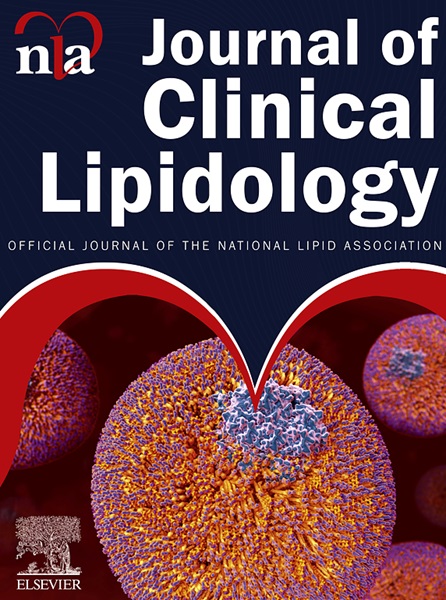A qualitative study to explore the patient experience of hypertriglyceridemia-related acute pancreatitis
IF 4.6
3区 医学
Q2 PHARMACOLOGY & PHARMACY
引用次数: 0
Abstract
BACKGROUND
Hypertriglyceridemia (HTG) is a common cause of acute pancreatitis (AP) and can be exacerbated by acquired metabolic conditions or rare inherited disorders (eg, familial chylomicronemia syndrome [FCS]), leading to HTG-induced AP (HTG-AP). HTG-AP is associated with severe abdominal pain typically requiring hospitalization and significantly impacts health-related quality of life (HRQoL).
OBJECTIVE
To understand patients’ perspectives on the HRQoL impacts of HTG-AP.
METHODS
Interviews were conducted with adults with severe/very severe HTG and/or FCS, experiencing ≥1 HTG-AP episode in the past 2 years requiring an overnight hospitalization. An interview guide, developed with patient and clinical expert input, explored symptoms, long-term HRQoL impacts, and management of HTG-AP. Participants completed a background questionnaire, the EQ-5D-5L and select items from the PROMIS Profile v1.0-FCS 28 prior to interview. Interview transcripts were analyzed using thematic and content analysis.
RESULTS
Twelve participants completed the study (aged 32-66 years), 3 with genetically confirmed FCS. Participants described a sudden onset of HTG-AP episodes and a gradual recovery following medical intervention (up to several weeks). Participants described substantial symptomatic burden during episodes, including severe abdominal pain, fatigue, gastrointestinal symptoms, fever, and appetite loss. These impacted psychological wellbeing, relationships, and daily activities. Many of the symptoms and impacts on HRQoL (eg, pain, work impacts) persisted between episodes and had long-term effects. Participants reported substantial lifestyle restrictions (eg, dietary) to manage symptoms.
CONCLUSION
HTG-AP has a substantial symptomatic and HRQoL burden during episodes, which can persist postrecovery. Treatments that reduce the incidence of HTG-AP have potential to improve HRQoL.
一项探讨高甘油三酯血症相关急性胰腺炎患者经历的定性研究。
背景:高甘油三酯血症(HTG)是急性胰腺炎(AP)的常见病因,可因获得性代谢状况或罕见的遗传性疾病(如家族性乳糜小铁血症综合征[FCS])而加重,导致HTG诱导的AP (HTG-AP)。HTG-AP与严重腹痛相关,通常需要住院治疗,并显著影响健康相关生活质量(HRQoL)。目的:了解患者对HTG-AP对HRQoL影响的看法。方法:对严重/极严重HTG和/或FCS患者进行访谈,这些患者在过去2年内经历了≥1次HTG- ap发作,需要住院过夜。根据患者和临床专家的意见制定了一份访谈指南,探讨了HTG-AP的症状、长期HRQoL影响和管理。参与者在访谈前完成了一份背景调查问卷、EQ-5D-5L和PROMIS Profile v1.0-FCS 28中的选择项目。访谈记录采用主题分析和内容分析进行分析。结果:12名参与者完成了研究(年龄32-66岁),其中3名遗传证实为FCS。参与者描述了HTG-AP发作的突然发作,并在医疗干预后逐渐恢复(长达几周)。参与者描述了发作期间严重的症状负担,包括严重腹痛、疲劳、胃肠道症状、发烧和食欲减退。这些都会影响心理健康、人际关系和日常活动。许多症状和对HRQoL的影响(如疼痛、工作影响)在发作之间持续存在,并具有长期影响。参与者报告了大量的生活方式限制(如饮食)来控制症状。结论:HTG-AP在发作期间具有显著的症状负担和HRQoL负担,且在康复后持续存在。减少HTG-AP发生率的治疗有可能改善HRQoL。
本文章由计算机程序翻译,如有差异,请以英文原文为准。
求助全文
约1分钟内获得全文
求助全文
来源期刊
CiteScore
7.00
自引率
6.80%
发文量
209
审稿时长
49 days
期刊介绍:
Because the scope of clinical lipidology is broad, the topics addressed by the Journal are equally diverse. Typical articles explore lipidology as it is practiced in the treatment setting, recent developments in pharmacological research, reports of treatment and trials, case studies, the impact of lifestyle modification, and similar academic material of interest to the practitioner.
Sections of Journal of clinical lipidology will address pioneering studies and the clinicians who conduct them, case studies, ethical standards and conduct, professional guidance such as ATP and NCEP, editorial commentary, letters from readers, National Lipid Association (NLA) news and upcoming event information, as well as abstracts from the NLA annual scientific sessions and the scientific forums held by its chapters, when appropriate.

 求助内容:
求助内容: 应助结果提醒方式:
应助结果提醒方式:


